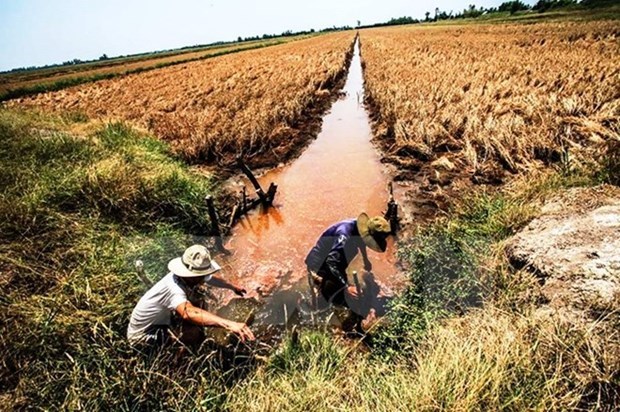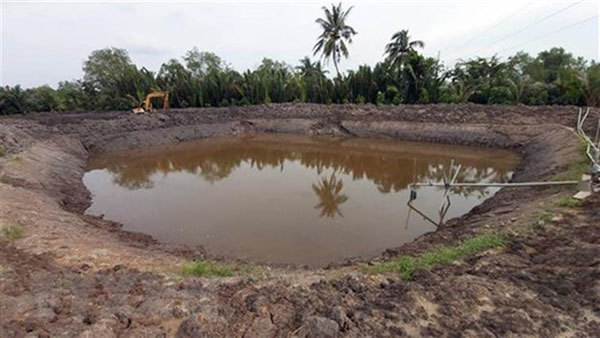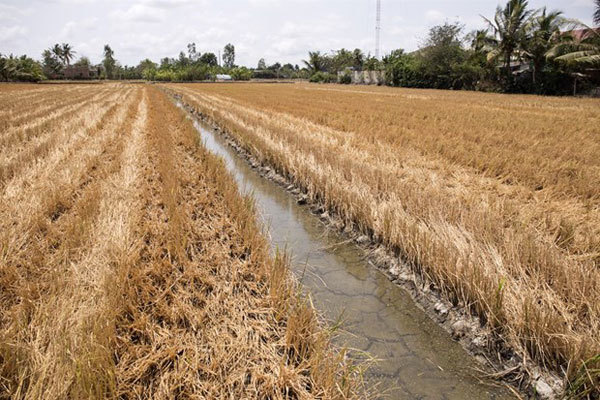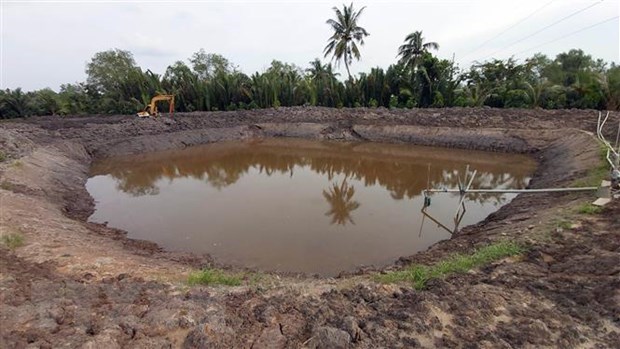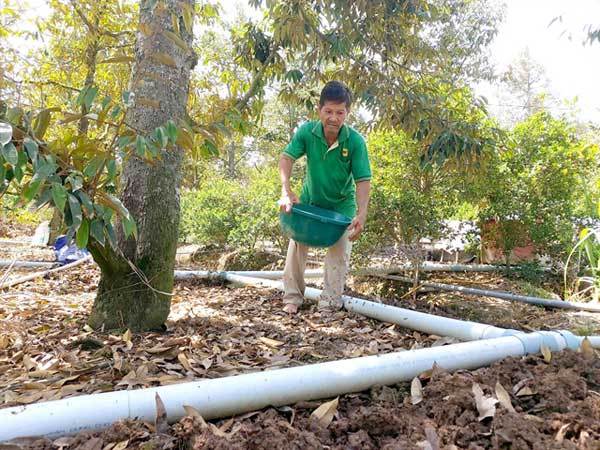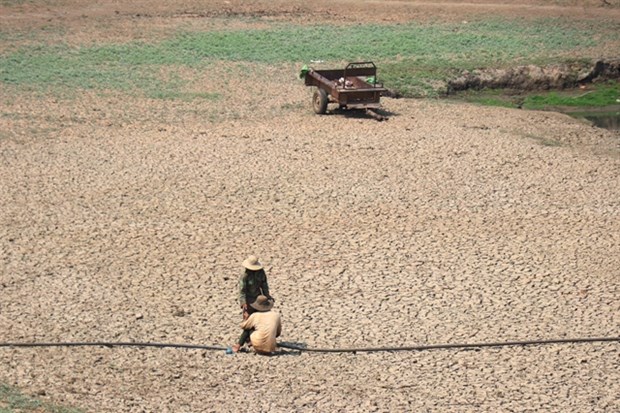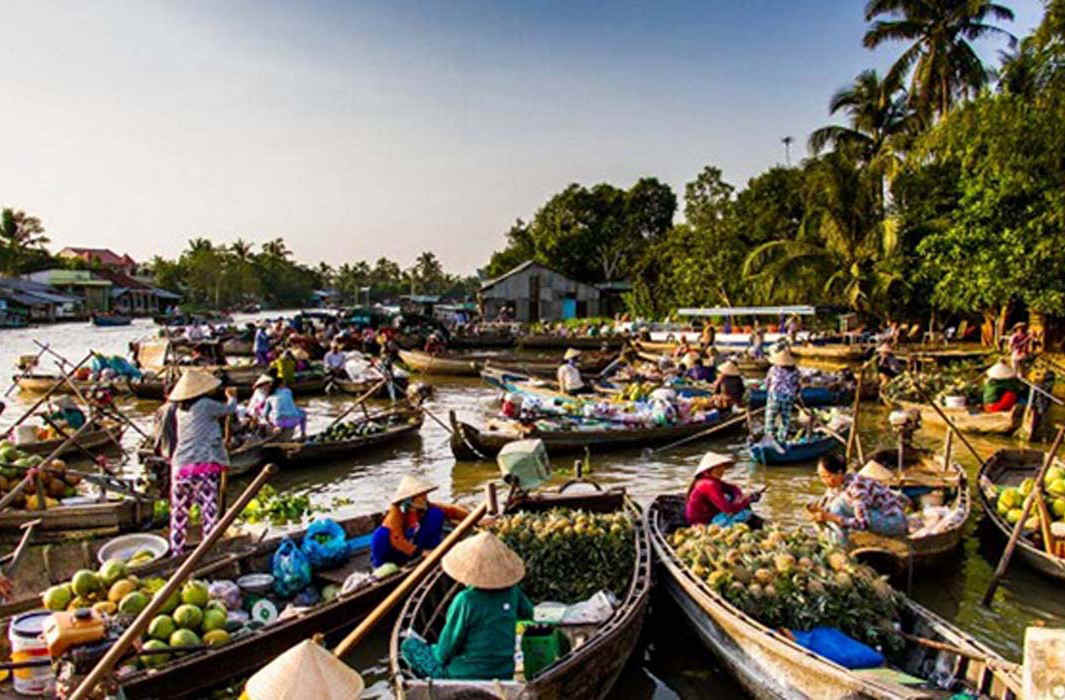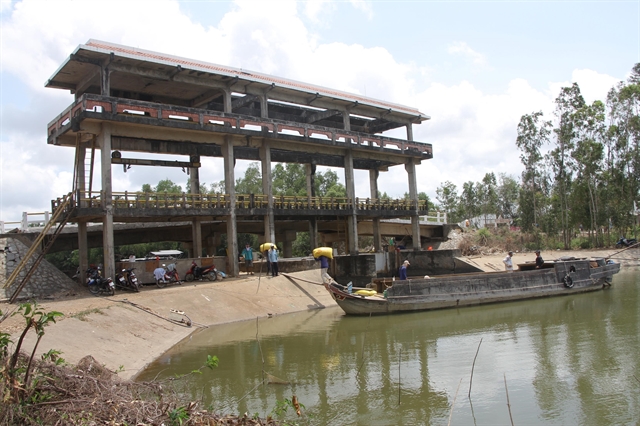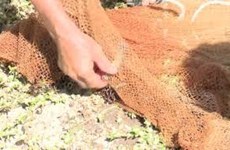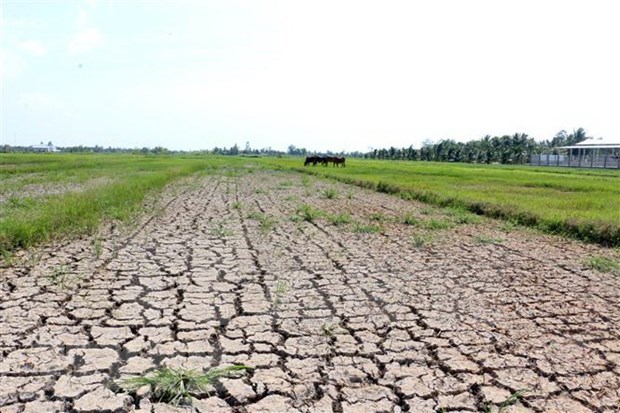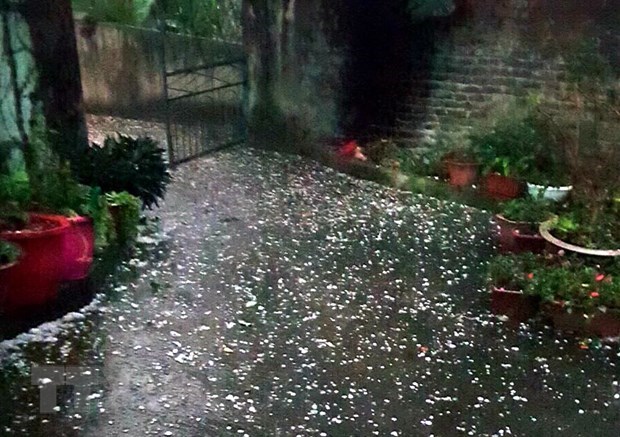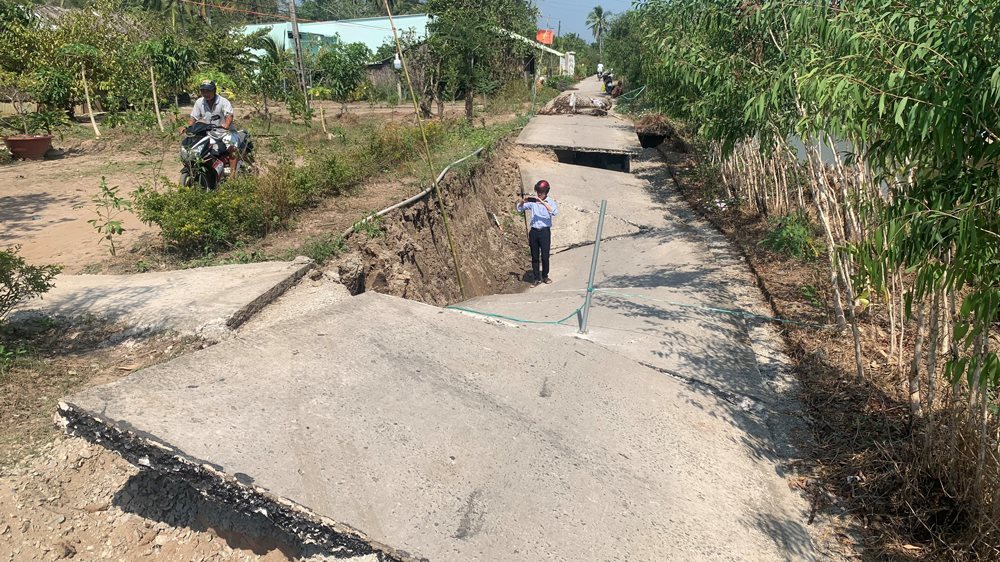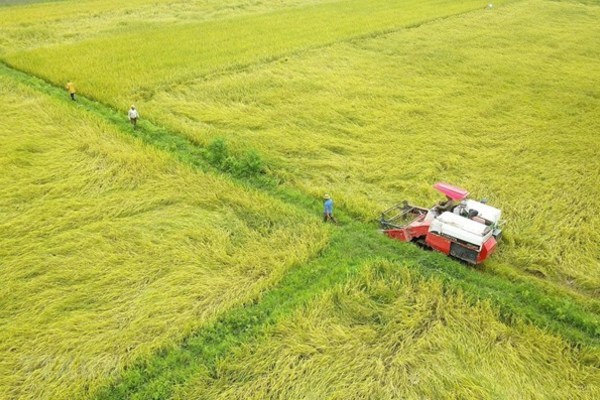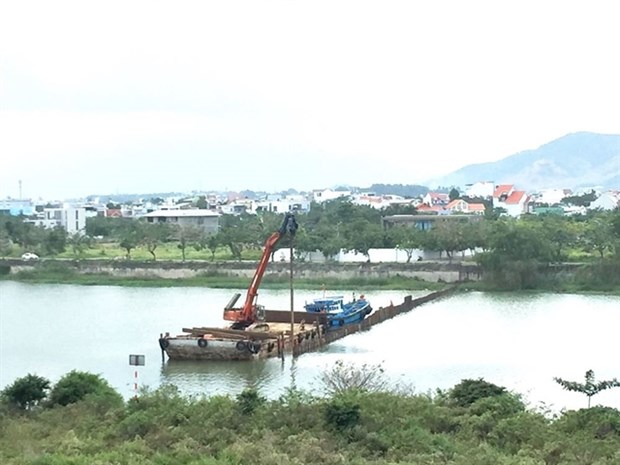- © Copyright of Vietnamnet Global.
- Tel: 024 3772 7988 Fax: (024) 37722734
- Email: [email protected]
saline intrusion
Update news saline intrusion
Saline intrusion may occur earlier in Mekong Delta
The level of saltwater intrusion may be approximately at the level of 2015-2016, which saw historic salinity and drought in the region.
Water shortage, saline intrusion forecast to be serious this year
Many regions across the country, especially the Central Highlands and Mekong Delta, face risks of water shortage, drought and saline intrusion next month, according to hydro-meteorology experts.
Water shortages, climate change linked to saline intrusion in Mekong Delta
The most severe saline intrusion - the movement of ocean saltwater into riverine freshwater - is said to occur in the Mekong Delta region from February 8 to 16, coinciding with the Tet (Lunar New Year) holiday,
Saline intrusion in Mekong Delta forecast to be severe during Tet
A severe period of saltwater intrusion in the Mekong Delta due to lower water levels upstream is expected to fall from February 8 to 16 as Vietnam celebrates the Lunar New Year (Tet) festival.
Mekong Delta takes preventive measures against saline intrusion in next dry season
Local authorities in the Cuu Long (Mekong) Delta have begun taking measures to cope with the effects of saltwater intrusion and drought in the upcoming 2020-21 dry season.
Mekong Delta adapts to saline intrusion
 Nguyen Hoang Hiep, Deputy Minister of Agriculture and Rural Development, talks to the Government's website chinhphu.vn on the need to develop plans to reduce the negative impacts of drought, salinity and land subsidence in the Mekong Delta.
Nguyen Hoang Hiep, Deputy Minister of Agriculture and Rural Development, talks to the Government's website chinhphu.vn on the need to develop plans to reduce the negative impacts of drought, salinity and land subsidence in the Mekong Delta.
Vietnam effectively curbs impacts of drought, saline intrusion in Mekong Delta
 Mekong Delta provinces have experienced the most severe drought and saline intrusion ever in the dry season 2019-2020 but the negative impacts on agriculture production and daily life were minimised significantly thanks to effective measures,
Mekong Delta provinces have experienced the most severe drought and saline intrusion ever in the dry season 2019-2020 but the negative impacts on agriculture production and daily life were minimised significantly thanks to effective measures,
Vietnam forecast to face historic heat waves in 2020
 Vietnam is forecast to suffer the highest temperatures ever recorded in 2020, according to the latest report by the Vietnam Meteorological and Hydrological Administration.
Vietnam is forecast to suffer the highest temperatures ever recorded in 2020, according to the latest report by the Vietnam Meteorological and Hydrological Administration.
Mekong Delta in 50-100 years will be radically different
 Scientists predict that in 50-100 years, the Mekong Delta may be one meter below the sea water level because of climate change.
Scientists predict that in 50-100 years, the Mekong Delta may be one meter below the sea water level because of climate change.
Soc Trang declares emergency due to saline intrusion
 The Mekong Delta province of Soc Trang has declared a state of emergency after drought and saltwater intrusion hit the region, strongly affecting local residents’ lives and production.
The Mekong Delta province of Soc Trang has declared a state of emergency after drought and saltwater intrusion hit the region, strongly affecting local residents’ lives and production.
Vietnamese singer launches project to fight COVID-19, saline intrusion
 Vietnamese singer Vu Cat Tuong has recently launched a bilingual project entitled Tomorrow that aims to raise funds to fight the COVID-19 pandemic and saltwater intrusion in the Mekong Delta.
Vietnamese singer Vu Cat Tuong has recently launched a bilingual project entitled Tomorrow that aims to raise funds to fight the COVID-19 pandemic and saltwater intrusion in the Mekong Delta.
Soc Trang taps efficient farming models to beat climate change
 Farmers in the Mekong Delta province of Soc Trang have adopted many new farming models to adapt to climate change, which has helped them cope with the severe saltwater intrusion.
Farmers in the Mekong Delta province of Soc Trang have adopted many new farming models to adapt to climate change, which has helped them cope with the severe saltwater intrusion.
Saline intrusion in Mekong Delta likely to linger on
 Saline intrusion in the Mekong Delta will likely remain at a high level until the end of April or early May, before gradually declining, according to the National Centre for Hydro-meteorological Forecasting.
Saline intrusion in the Mekong Delta will likely remain at a high level until the end of April or early May, before gradually declining, according to the National Centre for Hydro-meteorological Forecasting.
11 minor earthquakes occur in Vietnam so far this year
 Eleven minor earthquakes have occurred in Vietnam since the beginning of this year, according to the Standing Office of the Central Steering Committee for Natural Disaster Prevention and Control.
Eleven minor earthquakes have occurred in Vietnam since the beginning of this year, according to the Standing Office of the Central Steering Committee for Natural Disaster Prevention and Control.
Should water be transferred from east to west to save the Mekong Delta?
 Experts believe that it is necessary to think of measures to lead water to the Mekong Delta through a transmission network to save the area from severe drought and saline intrusion.
Experts believe that it is necessary to think of measures to lead water to the Mekong Delta through a transmission network to save the area from severe drought and saline intrusion.
Severe drought, saline intrusion can be predicted months in advance: expert
 Nguyen Huu Thien, an independent expert on the Mekong Delta, said he warned of severe drought and saline intrusion in mid-2019 after observing the flood season and the salty-fresh water boundary of the river.
Nguyen Huu Thien, an independent expert on the Mekong Delta, said he warned of severe drought and saline intrusion in mid-2019 after observing the flood season and the salty-fresh water boundary of the river.
Mekong Delta under pressure amid climate change
 It is now the dry season, but landslides and subsidence are occurring in most localities in Mekong Delta.
It is now the dry season, but landslides and subsidence are occurring in most localities in Mekong Delta.
Mekong Delta gets bumper crop despite saline intrusion
 Though saltwater intrusion in the Mekong Delta comes earlier and with higher level of salinity than that recorded in the 2015-16 dry season, the damages to farming areas are expected to be less serious
Though saltwater intrusion in the Mekong Delta comes earlier and with higher level of salinity than that recorded in the 2015-16 dry season, the damages to farming areas are expected to be less serious
Da Nang: Dams built to deal with lack of fresh water
 Da Nang has begun construction of a steel dam – the second of its kind – on the lower Cam Le River to reduce salinity and deal with serious water shortages in the dry season this year.
Da Nang has begun construction of a steel dam – the second of its kind – on the lower Cam Le River to reduce salinity and deal with serious water shortages in the dry season this year.
Central Vietnam at high risk of drought: official
 The central region is at high risk of drought from March to May, the remaining months of this dry season, said Deputy Director of the National Centre for Hydrometeorological Forecasting Vu Duc Long said on March 9.
The central region is at high risk of drought from March to May, the remaining months of this dry season, said Deputy Director of the National Centre for Hydrometeorological Forecasting Vu Duc Long said on March 9.
